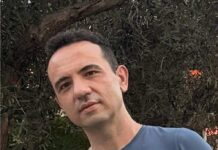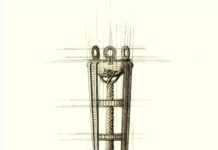Επιμέλεια: Εύα Πετροπούλου Λιανού
Alexandra Cretté translation in french
Keshab Sigdel (1979) is a Nepali poet, editor, academic and rights activist. He is the author of Samaya Bighatan (‘Dissolution of Time’, 2007) and Colour of the Sun (Poesis, 2017). He has edited Madness: An anthology of world poetry (RedPanda Books, 2023) featuring 297 poets from 101 countries/territories. He also edited a volume of Nepali poetry, An Anthology of Contemporary Nepali Poetry (Big Bridge, 2016). His recent work of translation Shades of Color (Nepal Academy, 2021), is a collection of indigenous Nepali poetry. Besides poetry, he also writes fiction, literary essays and plays. He is the Editor of Poetry Planetariat, a global poetry magazine published by World Poetry Movement. He also co-edited Of Nepalese Clay, literary journal of the Society of Nepali Writers in English and Rupantaran, a journal of translation published by Nepal Academy. Sigdel teaches Poetry and Literature of War, Conflict and Trauma at Tribhuvan University in Kathmandu.
An Evening
(In memory of the people disappeared during a decade long civil war in Nepal)
Each day before the sun sets
Cows return to their sheds
Blowing dust along their trails
The goat’s kid that had parted from its flock
Comes hopping at the yard of the house
And looks reassured.
Somewhere around the guava grove
The soft sound of the beetles
Grow into a strong melody.
In its hide-and-seek movement through tiny clouds
The moon glitters.
After keeping safe his slippers with the blue straps
Chádani’s father sits with his legs crossed at the porch
He takes out a leaf-wrapped tobacco stick
And with a loud voice
Asks for a coal-fire to kindle it.
This way, since many years,
This old house has composed a melody
Of its happiness.
Unexpectedly, today
The cows did not return through their dusty trails
Nor did the goat’s kid arrive hopping as usual.
The frogs croak incessantly
Probably to invite rain in the village
Chádani’s father’s slippers are found
With their broken straps
Below the guava tree nearby our house.
Due to some unknown fear
I am sweating.
At the edge of a paddy field
There is a cloth, completely drenched.
As the moon grows dull covered by the clouds
I am unable to discern
Whether that piece of cloth
Is a flag of victory
Or an indication of my despair!
Une soirée
(En mémoire de ceux qui disparurent durant la longue décennie de guerre civile au Népal)
Chaque jour avant que le soleil ne tombe
Les vaches retournent à leur stalles
Soulevant poussière au long de leurs chemins.
Le chevreau qui s’était séparé de son troupeau
Revient, sautillant dans la cour de la maison,
rassuré.
Quelque part autour du bosquet de goyaves
Le doux son des scarabées
Grandit au sein d’une mélodie puissante.
Dans son jeu de cache-cache au travers de minuscules nuages
La lune brille.
Après avoir mis en sécurité ses pantoufles aux lanières bleues
Le père de Chadani s’assoit,
jambes croisées, sous le porche.
Il sort la feuille enroulée d’un bâton de tabac
Et d’une voix forte
Demande un feu de charbon pour l’allumer.
C’est ainsi que, depuis de nombreux ans,
Cette vieille maison a composé la musique
De son propre bonheur.
Mais aujourd’hui
Les vaches ne reviennent pas par leurs chemins poussiéreux
Le chevreau n’est pas venu en sautillant non plus.
Les grenouilles coassent sans répit
Certainement pour inviter la pluie au village.
On a retrouvé les pantoufles du père de Chadani
Leurs lanières cassées
Sous les goyaviers non loin de la maison.
Sous le coup d’une peur inconnue
Je transpire.
Au bord d’une rizière
Il y a un linge complètement trempé.
Alors que la lune ternit, couverte par les nuages
Je ne suis pas capable de discerner
Si ce morceau de linge
Est le drapeau de la victoire
Ou le signe de ma détresse!


































